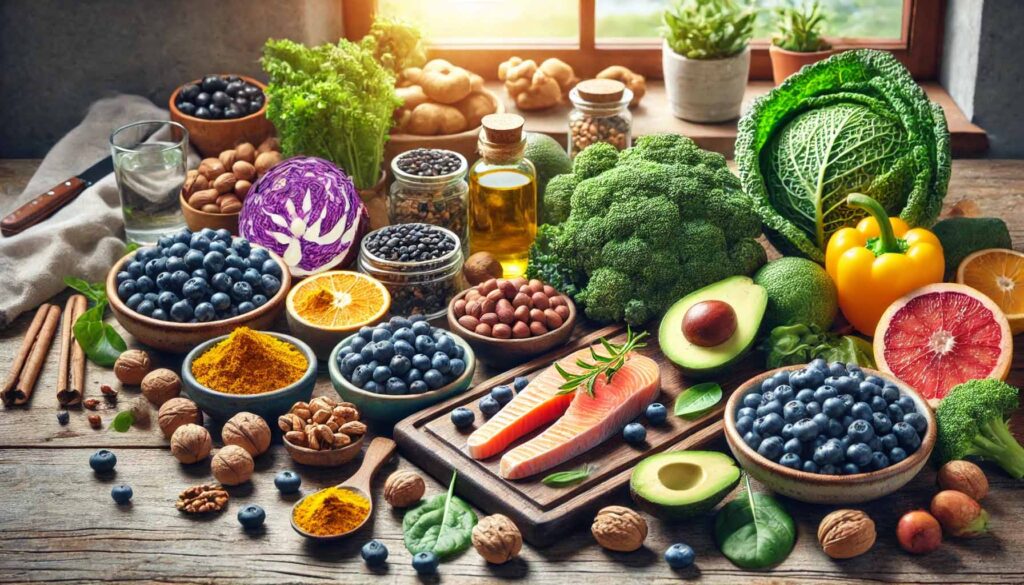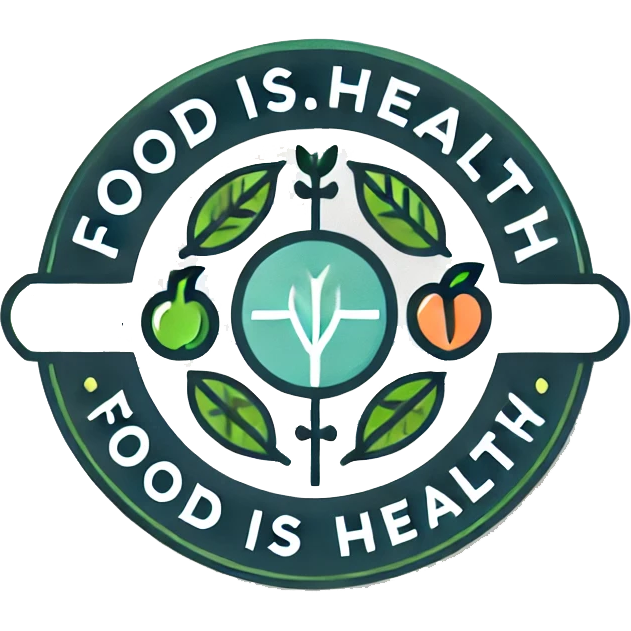Gut health has become a hot topic in recent years, and for good reason. Your gut, also known as the digestive system, is home to trillions of bacteria, often referred to as your “gut microbiome.” These bacteria play a significant role in not just digestion but also in your overall health, including immune function, mood, and even weight management. To keep your gut healthy, incorporating certain “functional foods” into your diet can make a big difference. Functional foods are foods that offer health benefits beyond basic nutrition. In this article, we’ll explore some of the best functional foods you can eat to improve your gut health.

1. Probiotic-Rich Foods
Probiotics are live bacteria and yeasts that are beneficial for your digestive system. They are often called “good” or “friendly” bacteria because they help keep your gut healthy. Including probiotic-rich foods in your diet can boost the number of good bacteria in your gut, which can help improve digestion, reduce bloating, and enhance your immune system.
Some of the best probiotic foods include:
- Yogurt: Look for yogurt that contains live and active cultures. Greek yogurt is an excellent choice because it’s also high in protein.
- Kefir: A fermented milk drink that’s packed with probiotics. It’s slightly tangy and can be enjoyed on its own or in smoothies.
- Sauerkraut: Fermented cabbage that’s rich in probiotics. Make sure to choose unpasteurized sauerkraut to get the live bacteria.
- Kimchi: A traditional Korean side dish made from fermented vegetables, usually cabbage and radishes. It’s spicy, flavorful, and great for gut health.
- Miso: A Japanese seasoning made from fermented soybeans. It’s often used in soups and can add a rich umami flavor to your dishes.
2. Prebiotic Foods
Prebiotics are a type of fiber that the human body can’t digest. Instead, they serve as food for the beneficial bacteria in your gut, helping them grow and thrive. Including prebiotic foods in your diet can help maintain a healthy balance of gut bacteria, which is crucial for overall digestive health.
Here are some prebiotic-rich foods to consider:
- Garlic: Garlic is not only a flavorful addition to your meals, but it also contains inulin, a type of prebiotic fiber that promotes the growth of good bacteria.
- Onions: Like garlic, onions are rich in inulin and can help support your gut health. They can be enjoyed raw in salads or cooked in a variety of dishes.
- Asparagus: This green vegetable is not only tasty but also high in inulin. Roasted, steamed, or grilled, asparagus is a great addition to any meal.
- Bananas: Bananas are a convenient and delicious source of prebiotic fiber. They are also rich in vitamins and minerals that support overall health.
- Oats: Oats contain beta-glucan, a type of soluble fiber that has prebiotic properties. A bowl of oatmeal can be a gut-friendly way to start your day.
3. Fermented Foods
Fermented foods are made by allowing bacteria and yeast to break down the sugars in food. This process not only preserves the food but also enhances its nutritional value. Fermented foods are rich in probiotics, which can help improve gut health by increasing the number of beneficial bacteria in your digestive system.
Some popular fermented foods include:
- Tempeh: A fermented soy product that’s high in protein and probiotics. It has a firm texture and a nutty flavor, making it a great meat substitute in vegetarian dishes.
- Pickles: Fermented cucumbers, known as pickles, are a tasty and tangy snack that can support gut health. Look for pickles that are naturally fermented, as some varieties are simply preserved in vinegar and don’t contain probiotics.
- Kombucha: A fermented tea drink that’s fizzy, slightly sweet, and full of probiotics. It’s available in many flavors and can be a refreshing way to boost your gut health.
- Natto: A traditional Japanese food made from fermented soybeans. It has a strong flavor and sticky texture, but it’s packed with probiotics and vitamins.
4. High-Fiber Foods
Fiber is essential for a healthy digestive system. It adds bulk to your stool, making it easier to pass, and helps prevent constipation. There are two types of fiber: soluble and insoluble. Soluble fiber dissolves in water and forms a gel-like substance, while insoluble fiber adds bulk to your stool. Both types are important for gut health.
Some high-fiber foods to include in your diet are:
- Whole Grains: Foods like brown rice, quinoa, and whole wheat are rich in fiber and can support a healthy gut.
- Legumes: Beans, lentils, and chickpeas are excellent sources of fiber. They’re also high in protein and can be used in a variety of dishes.
- Fruits: Apples, pears, and berries are all high in fiber. Eating them with the skin on provides the most fiber.
- Vegetables: Leafy greens like spinach and kale, as well as root vegetables like carrots and sweet potatoes, are rich in fiber and can help keep your digestive system running smoothly.
- Nuts and Seeds: Almonds, flaxseeds, and chia seeds are packed with fiber. They can be added to salads, smoothies, or eaten as a snack.
5. Polyphenol-Rich Foods
Foods rich in polyphenols include:
- Berries: Blueberries, strawberries, and raspberries are all high in polyphenols. They’re also rich in vitamins and fiber, making them a great addition to any diet.
- Dark Chocolate: Yes, you read that right! Dark chocolate is rich in polyphenols and can be good for your gut in moderation. Look for chocolate with a high cocoa content for the most benefits.
- Green Tea: This popular beverage is rich in polyphenols called catechins, which have been shown to improve gut health. Drinking a cup of green tea daily can be a healthy habit.
- Red Wine: In moderation, red wine can be beneficial for your gut because of its high polyphenol content. Just remember, moderation is key!
- Olive Oil: Extra virgin olive oil is not only heart-healthy but also rich in polyphenols that can support a healthy gut.
Conclusion
Improving your gut health can have a significant impact on your overall well-being. By including functional foods like probiotic-rich foods, prebiotic foods, fermented foods, high-fiber foods, and polyphenol-rich foods in your diet, you can help maintain a healthy balance of bacteria in your gut. This can lead to better digestion, a stronger immune system, and even improved mood and mental health. Remember, a healthy gut is the foundation of a healthy body, so start incorporating these functional foods into your diet today!
Make sure to check out more articles in our News & Views section. Feel free to reach out any time to collaborate with Food Is Health on projects which help people heal through natural food & nutrition.
Organic vs Conventional Food | Food Preservatives & Additives | Anti-Inflammatory Diets | Gut Health & Probiotics | Plant-Based Diets | Detox Diets & Cleanses | Food Allergies & Sensitivities Functional Foods | Sustainable Eating & Food Waste | Ag Related Topics | Popular Topics
